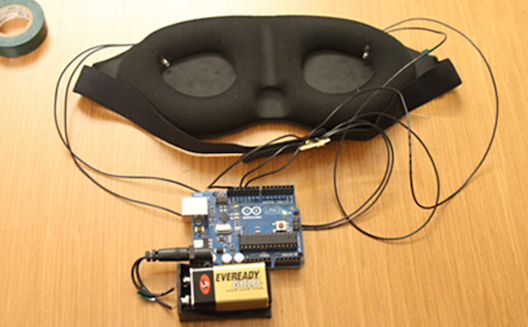Lebanese scientist finds a potential treatment for jetlag


A techie bedtime. (Image via Lumos Tech)
This article is a crosspost with MIT Technology Review Arab Edition.
Jet lag is a temporary circadian disorder that can occur anytime you quickly travel across two or more time zones. It leaves you sleepy and tired, with a lack of alertness, a general feeling of malaise, and sometimes gastrointestinal problems– and the more time zones you cross, the more intense the symptoms are likely to be.
Jet lag occurs because the body’s central clock that controls our behavioral and physiological circadian rhythms (e.g. sleep-wake cycles, eating time, hormonal secretions, body temperature patterns, etc.), and that is naturally synchronized to the day-night cycles of our environment, is quickly taken out of the natural day-night conditions it has grown accustomed to, to a new daylight schedule, making it go out of synchronization, and upsetting our entire body’s patterns.
After arriving in a new time zone, the body eventually adjusts on its own, but at a slow pace of about one hour a day if traveling from west to east, and 2 hours a day from east to west. So if you’re traveling from New York to Dubai for an 8-day trip, for example, it may take you 6 to 8 days to fully recover.
To continue reading this post click here.


